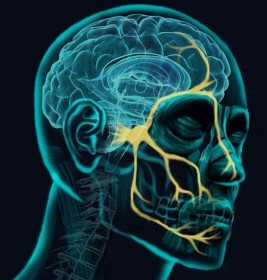Study Finds Poor Oral Health Increases the Risk of Meniere’s Disease
According to a recent study published in the Journal of Personalized Medicine, poor oral health may increase the risk of developing Meniere’s disease. Meniere’s disease is a disorder of the inner ear that can cause vertigo, hearing loss, and tinnitus. The study found that there was a significant association between poor oral health status and an increased risk of developing Meniere’s disease.
The study, conducted by researchers from Mokdong Hospital in Seoul, South Korea, examined data from 2.24 million adults who underwent oral health screening by dentists in 2003. The participants were followed up for a median of 16.7 years. The researchers found that 5.0 percent of participants developed Meniere’s disease.
The study found that there were significant associations between poor oral health status and an increased risk of Meniere’s disease. Participants with periodontitis, a serious gum infection that damages the soft tissue and destroys the bone that supports teeth, had a higher risk of developing Meniere’s disease. The risk also increased with an increased number of missing teeth, with those who had 15 or more missing teeth having a higher risk of developing the condition.
However, the study also found that better oral hygiene behaviors, such as frequent tooth brushing of at least three times a day and dental scaling within one year, were associated with a lower risk of Meniere’s disease. The researchers suggest that these findings could be due to the systemic inflammation associated with periodontitis, which may significantly influence the development of Meniere’s disease.
In a subgroup analysis, the study found that periodontitis was more strongly associated with Meniere’s disease in younger subgroups and subgroups with low body mass index. The authors suggest that the systemic inflammation associated with periodontitis may have a greater impact on younger individuals and those with a lower body mass index.
The study notes in conclusion the importance of maintaining good oral health for overall health and well-being, as well as reducing the risk of Meniere’s disease. Regular dental check-ups, proper dental hygiene, and prompt treatment of gum disease may help reduce the risk of developing Meniere’s disease.
Maintaining good oral health is considered essential for overall health and well-being. Proper dental hygiene can help prevent tooth decay, gum disease, and other oral health problems. Regular brushing and flossing, as well as routine dental check-ups, are critical for maintaining good oral health. Brushing your teeth twice a day for at least two minutes each time can help remove plaque and food particles that can lead to tooth decay and gum disease. Flossing once a day can help remove food particles and plaque from between teeth and along the gum line. Additionally, using mouthwash can help kill bacteria and freshen breath.
A healthy diet can also help maintain good oral health. Limiting sugary and acidic foods and drinks can help prevent tooth decay and erosion. Eating a balanced diet rich in fruits, vegetables, lean protein, and whole grains can provide essential nutrients for healthy teeth and gums. Drinking plenty of water can also help keep your mouth hydrated and wash away food particles and bacteria. Finally, avoiding tobacco and excessive alcohol consumption can help reduce the risk of oral cancer and other oral health problems.
If you found this article useful Click here to support Meniere’s Help paypal.me/menieres
Related articles: Meniere’s disease symptoms related dental issues?
References/Further reading:
- Park JH, Lee JH, Kim HJ, et al. Oral Health and Meniere’s Disease: A Population-Based Cohort Study. J Pers Med. 2022;12(1):44. Published 2022 Jan 4. doi:10.3390/jpm12010044
- Meniere’s disease. Mayo Clinic. https://www.mayoclinic.org/diseases-conditions/menieres-disease/symptoms-causes/syc-20374910. Published April 16, 2020. Accessed March 10, 2023.
Help other sufferers. Do you have experience with poor oral health and the symptoms of Meniere’s? Tell us all about it in the comments box below or email Mike at meniereshelp@gmail.com
